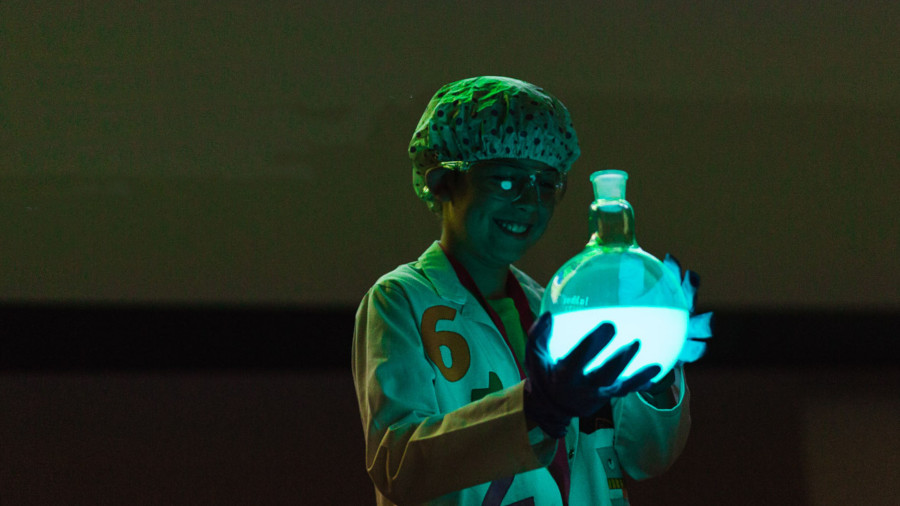The Faculty of Biosciences to host the Recerkids Congress to bring research closer to primary school students
On Wednesday 17 May the third Recerkids Congress will take place, in which 215 girls and boys will share the results of their research at the UAB Faculty of Biosciences. The programme aims to bring scientific research closer to fifth and sixth graders. This year's subject focused on zoology and biodiversity, particularly on the effect of invasive species on ecosystems.

On 17 May, 215 pupils from 9 schools in the Barcelona area will take part in the third congress of the 7th edition of the Recerkids programme, promoted by the Ministry for Research and Universities of the Generalitat de Catalunya, in collaboration with the Universitat Autònoma de Barcelona.
The conference is the culmination of a term's work in which 5th and 6th grade primary school students carried out a scientific research project in the classroom, which this year focused on zoology and biodiversity, especially the impact of invasive species on ecosystems.
The event, which will be held in the conference hall of the Universitat Autònoma de Barcelona's Faculty of Biosciences, will allow the centres to share the results of their research with the other centres participating in the programme and with scientists from this institution.
The programme aims to awaken the scientific spirit
The Ministry for Research and Universities has been promoting the Recerkids programme for the past seven years with two main objectives: to promote research among children in 5th and 6th grades of primary school, and to raise awareness of the research and dissemination work carried out at universities and research centres in Catalonia.
The work of science based on enquiry and the resolution of problems in the pupils' environment increases the motivation of both pupils and teachers, and this explains the success of the programme year after year.
This year, more than 2,700 students from 70 schools across Catalonia have taken part in the programme, developing their research in the classroom and taking part in conferences held at various Catalan universities.
Work in the classroom
During the first phase, which began in January and ended in April, the class groups developed one of the proposed research projects. This year, to commemorate the anniversary of Jordi Sabater i Pi, the Catalan primatologist who discovered Snowflake in 1966, the research has been set within a highly topical subject that fits in with the 5th and 6th year curriculum: zoology and biodiversity and the impact of invasive species on ecosystems.
Within this theme, and with the aim of facilitating the work of the teaching staff, two investigations were offered, one open and one guided. The guided research proposal encouraged students to carry out a scientific study on an animal species that is causing changes in their social and natural environment. The other, more open-ended research suggested carrying out a scientific study on species and living beings and observing their evolution.
The teachers received teaching materials - a research notebook for the students and a teaching guide - and pedagogical advice from Eduxarxa's team of specialists in science teaching. Once the research finished, each group created a poster with the results of the research, which will be published on the programme's website.
The congress
The congress to be held on 17 May at the Faculty of Biosciences of the Universitat Autònoma de Barcelona will allow the 215 students taking part to present their research projects in front of the other centres and discuss them in detail with a researcher from the UAB Faculty of Biosciences.
They will also be able to enjoy various experimental workshops and a scientific show by the Big Van Science's Clowntífics group.
More information: